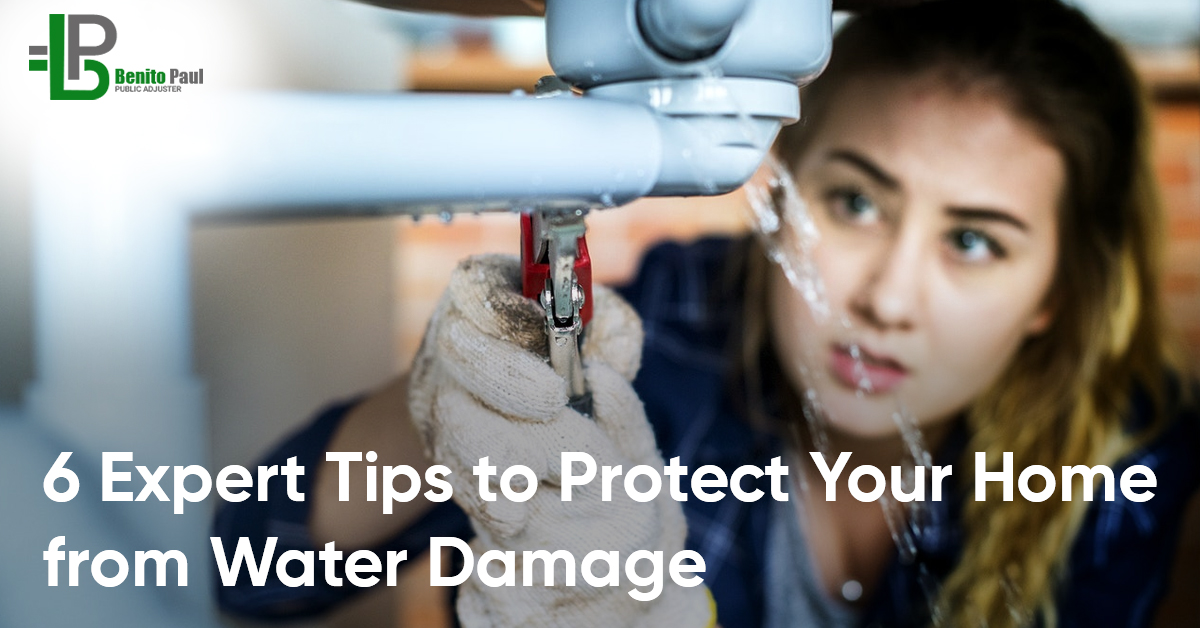To receive a fair settlement amount to carry out the necessary repair, restoration, and replacement work at your property from water damage, your best option is to hire an experienced public adjuster in your area.

Have you ever thought about the number of hours you stay away from your home? Whether it is about daily work, a visit to friends or relatives, a weekend getaway, or a week-long vacation, we all leave our home vacant quite often. Now, think how you would feel if you came back home after a minibreak, only to find your basement flooded with water, damaged ceiling and walls, and water running down the stairs. Yes, we are talking about unanticipated water damage!
As a matter of fact, water damage is perhaps the second most reason to file homeowners’ insurance claim in the U.S. Unfortunately, many homeowners think that water damage is the most insignificant thing that can happen to them. However, this belief is too far from reality. Stats depict that homeowners are seven times more likely to sustain water damage than fire damage and six times more likely to suffer water damage than burglary.
Here are common reasons behind plumbing leaks that often lead to water damage in our homes:
• Dishwashers
• Ice makers
• Toilets
• Water heaters
• Washing machines
• Sinks
• Showers and tubs
Whether you suffered a major water leak or just a minor one, the eventual water damage can be devastating, especially if the problem is left unattended for an extended period. Here are some expert tips to protect your home from potential water damage:
1. Check Faucets & Hoses Periodically: Experts suggest to annually check hoses that lead to your dishwasher, refrigerator, and washing machine. You should also look for small cracks or water leaks periodically. It is recommended to replace all hoses every 5 to 7 years.
2. Check Showers & Tubs Regularly: You should make sure that the caulking, encircling your tubs and showers are completely water-tight. If you find a crack in the caulk, replace it immediately. It is an inexpensive thing, but quite effective in preventing water from seeping into the floor.
3. Know the Location of the Water Main & How to Shut It Off: Not just you, but everyone in your family must know the location of the water main as well as how to shut off it. If a pipe bursts unexpectedly, it’s important to shut off the water supply immediately, even in your absence. In most emergency situations, shutting off the water main stops the flow of water.
4. Install Floor Pans: It is wise to install floor pans beneath your appliances. They are not quite effective in preventing major leaks, but they can still prevent any possible damage from slow unnoticed leaks.
5. Buy Leak Water Alarms: These work like smoke alarms. An alarm is triggered whenever water is detected in a specific section of your home, which warns you about a potential water damage risk. You can place water alarm sensors in areas like laundry rooms, basements, kitchens, bathrooms or beside a sump pump.
6. Purchase a Water Flow Monitoring System: When attached to the water main, a water flow monitoring system helps safeguard your entire home from water damage. The system measures water flow into your home. If the system detects continued water flow over and above the normal starting and stopping of your everyday-use appliances, it automatically ceases the flow of water into your home.
While these tips will substantially help you safeguard your house from any possible water damage, you – as a homeowners’ insurance policy holder – must know in advance what to do in the event of water damage.
To protect your rights and receive a fair settlement amount to carry out the necessary repair, restoration, and replacement work at your property, your best option is to hire an experienced water damage public adjuster in your area.
Just like insurance adjusters, who work in favor of their insurance companies, a public adjuster work in the best interest of policyholders to help them estimate their losses accurately, file their claim appropriately, and even negotiate with insurance companies (if required), so that their clients receive the best compensation possible.
